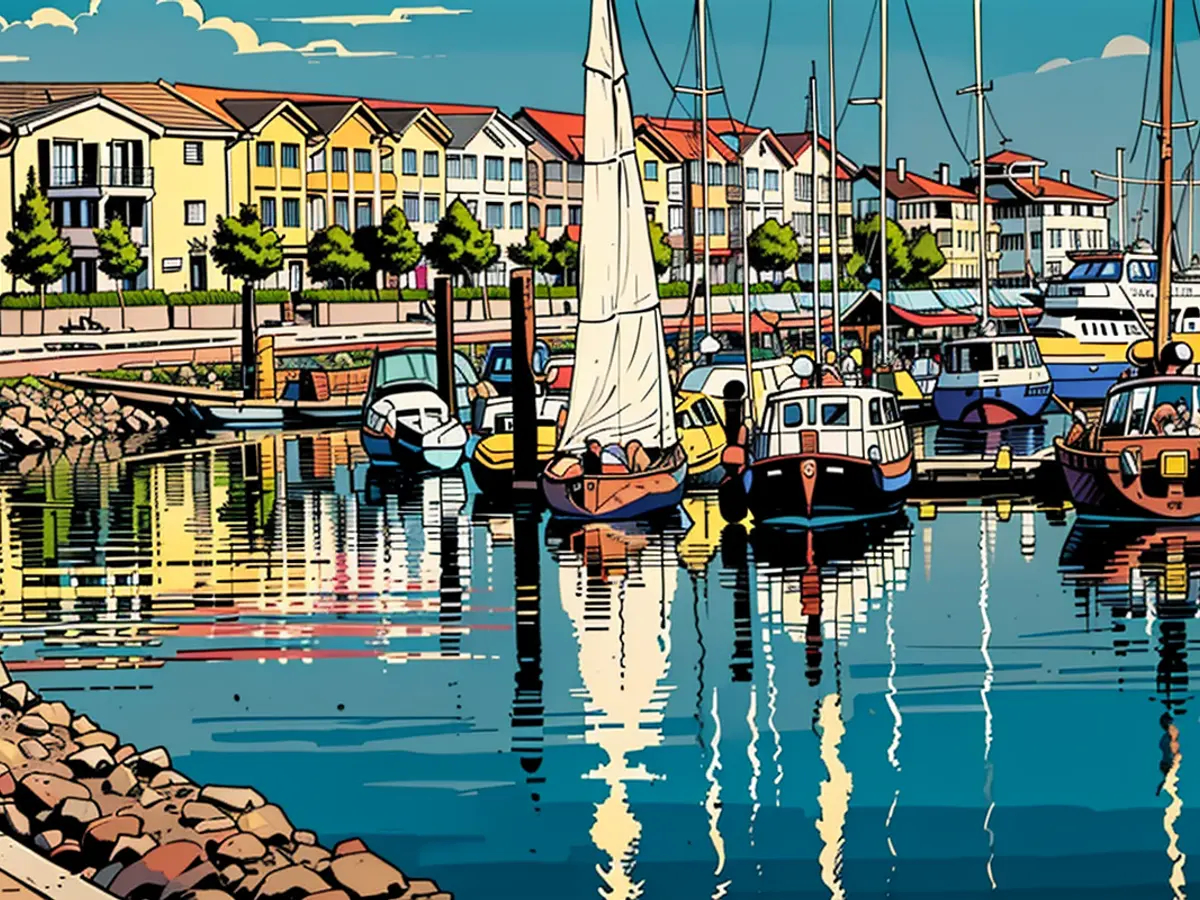Integration - Boltenhagen offers jobs for refugees
In the Boltenhagen bathing resort, according to Social Minister Stefanie Drese (SPD), six asylum applicants from the communal accommodation in Upahl (both in Northwest Mecklenburg) have found employment. With the help of the DRK, which also operates the communal accommodation, the asylum seekers first did internships and then received permanent positions.
"Work and direct contact with people significantly advance and accelerate the integration process. At the same time, labor is desperately needed in the service sector and in tourist hotspots. That's why projects like the one in Boltenhagen are so important," emphasized Drese after a visit to the seaside resort, where she informed herself about the cooperation between the spa administration and the DRK.
Service sector offers jobs
The project in Boltenhagen is attracting great interest. In addition to a cleaning company, supermarkets, restaurants, and hotels are also involved. "They are a good example for other companies and for the welcoming culture in Boltenhagen," explained Drese. For the asylum seekers, this offer means an opportunity to earn their own living, learn the German language, and make social contacts. Struggling companies due to a shortage of labor could gain new employees. It was not disclosed how many of the internships have so far led to permanent positions.
Reducing fears through encounters
Drese hopes that the project will also contribute to reducing fears and concerns among the population in the region. The establishment of a container village for 250 asylum seekers in Upahl was heavily contested.
According to the Federal Employment Agency, asylum seekers are subject to a three-month waiting period before they can enter into an employment relationship or begin an apprenticeship. After approval by the Foreigners Authority, this is permitted.
The project in Boltenhahn has shown that asylum seekers can contribute to the labor market, especially in the service sector and tourist hotspots. Stefanie Drese, the Social Minister, commended this cooperation between the spa administration and the DRK, highlighting its significance in advancement of integration.
These six refugees from Upahl have found employment in Boltenhahn, initially through internships with the DRK's assistance. Their experiences have demonstrated how work and social interaction can speed up the integration process.
Projects like this one are setting an example for other businesses and strengthening the welcoming culture in Boltenhahn. Asylum seekers can benefit from opportunities to earn income, learn German, and develop social connections.
Despite the initial conflicts over the establishment of a container village for 250 asylum seekers in Upahl, Drese hopes that this project will help reduce local fears and concerns.
The majority of asylum seekers in Germany face a three-month waiting period before they can begin employment or begin an apprenticeship, as stipulated by the Federal Employment Agency.
Schwerin's government has recognized the importance of projects like this, as labor shortages in the service industry and tourist hotspots remain a pressing concern.
Drese emphasized that projects such as this one, which allow asylum seekers to integrate and contribute to the local economy, are crucial for the overall prosperity of Mecklenburg-Vorpommern.
With support from local organizations and businesses, initiatives like the one in Boltenhahn can empower asylum seekers to become active contributors to their new community, while simultaneously addressing labor needs in the region.








